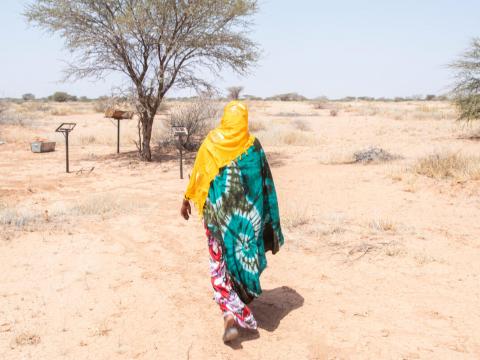Why planting a tree doesn’t make up for your takeaway coffee cups

It’s natural to look for quick fixes, but tackling climate change is going to take more than feel-good actions, writes Jason.
By Jason Garrett
It’s hard not to be encouraged by the higher profile the role of nature in tackling climate change is getting, with the CoP26 Climate Conference later this year and the recently launched UN Decade for Ecosystem Restoration. The UK Government has been talking about the importance of Nature-based Solutions and many companies now advertise how many trees they are planting to restore nature and offset their emissions. Much of this is very good, and encouraging to see, but I do also find it worrying. Call me cynical and jaded, but after more than 25 years working in NGOs I think I have a few good reasons to be sceptical.
Nature-based solutions, when done well, have the power to transform ecosystems, communities and the planet. What could be better than a solution that is based in nature rather than an untested technical solution?
Unfortunately, they also have the power to attract the attention of those who want to find a quick, cheap and easy solution to take the focus away from activities and lifestyles that are contributing to climate change.
As Nature-based Solutions become more popular, both the phrase and the concept, we are seeing more examples of ‘green-washing’ where badly designed, simplistic solutions are put forward as answers to the climate crisis. We all like a quick fix but these solutions are not promoting bio-diversity or benefitting local, vulnerable and at-risk communities. It is too easy for these solutions to be reduced to plantation-style tree planting or planting seedlings with little guarantee that they will become fully grown trees. And as we know, trees do fall in the forest, even if there is no one there to hear them.
These solutions can let us off the hook of having to do the hard work to reduce our own carbon footprints. The things we know we all need to do but can just feel a bit too hard sometimes… walking instead of driving, remembering our reusable bags or coffee cups, reducing the size and use of our cars, or switching to a renewable energy supplier.
Governments have difficult decisions to make when it comes to ending the drivers of climate change. But it’s so important that those decisions don’t cause more harm in the long term; some of the tough decisions are unavoidable. Or should be.
World Vision has signed up to the Nature-based Solutions Guidelines, along with 27 other organisations, including universities and academic institutions and environmental and conservation groups. The guidelines set out four principles to guide Nature-based Solutions, to try to avoid the problems outlined above:
- Not a substitute for phasing out fossil fuels – we must still drastically reduce our greenhouse gas emissions and decarbonise our economies
- Must involve the protection, restoration and/or management of ecosystems – Nature-based Solutions aren’t just about ways to sequester more carbon, they must be focused on protecting and restoring existing ecosystems
- Designed, implemented, managed and monitored by local communities and generates local benefits – Nature-based Solutions must bring benefits to local communities, and especially the most marginalised
- Supports or enhances biodiversity – it is imperative to make sure that Nature-based Solutions enhance biodiversity and improve ecosystem health.
This is why I’m excited about the work that World Vision does to support communities in regenerating and restoring local ecosystems, and the positive impact this can have on their livelihoods. I’ve been privileged to visit many countries around Africa and Asia during my time with World Vision and to see close up the difference our work can make to communities, and especially when our livelihoods work also helps to restore and regenerate ecosystems.
A farmer I met in Uganda proudly showed me the trees he had regenerated on his land. These grew back much quicker than if he had planted seedlings, and provided shade for his coffee plants, so not only was he restoring the local environment, increasing biodiversity, it meant his livelihood was more secure and more sustainable.
So planting trees is a great thing to do – I’ve done it myself! – but when we hear about big schemes to plant trees as the solution to the climate crisis, we need to check very carefully that all of these points have been taken into account before we support them. And we also need to talk about the advantages of regeneration and the added benefits that World Vision’s Farmer-Managed Natural Regeneration and re-greening approaches bring to the children and communities we work with.
And let’s keep reducing our own environmental footprint and encouraging others to do the same. Even a cynic like me sees the hope and power in that!
Jason Garrett is World Vision UK’s Senior Resilience Programme Adviser. Follow Jason on Twitter @JasonPGarrett